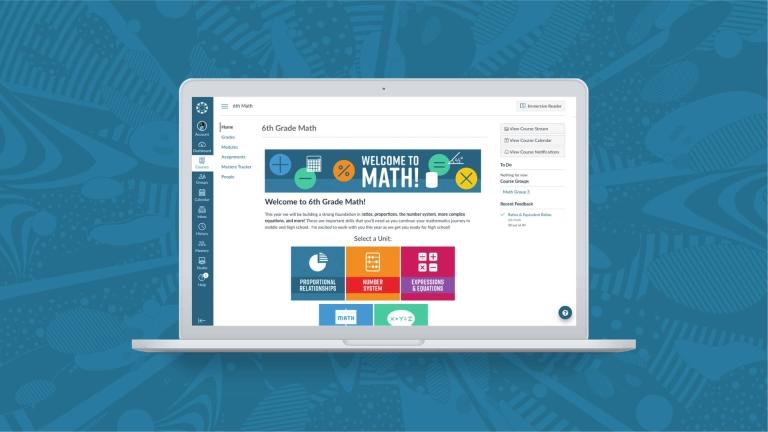
As summer comes to a close, we’re gearing up for an eventful start to the new school year. Whether you're going back with a distance, blended, or hybrid learning model, we've gathered our very best Canvas resources, tips, and tricks to get you started or give you a quick refresher for the school year ahead.
Define Your Scope With Simple Steps
If you’re new to Canvas, welcome to our community where over 850,000 educators, students, and administrators connect to collaborate on all things Canvas. We’re happy to have you with us. The good news? Our growing community is full of dynamic, passionate educators like you who know a thing or two about leading a successful Canvas adoption. We’ve learned over time that it’s easy to get carried away with learning new Canvas features if you don’t set clear and measurable goals for everyday usage. To keep you on track, we recommend starting with a simple checklist.
Here are a few of our favorite actionable resources that’ll have you using Canvas with just a few easy steps:
- Prepare for Distance Learning With Canvas LMS
- Quick Start Guide for Canvas LMS
- Quick Start Teacher Checklist
Educator Tip: Take a step back and identify your school's, institution's, or district's overall goals. Once you have a better idea of what you’re hoping to achieve, it’s easier to start identifying ways Canvas can support you and your students.
Save Time With Course Templates
No need to build an awesome course from scratch when you have Canvas Commons! Uploading course templates simplifies the course design process and creates a sense of consistency across all learning channels. When every teacher builds from the same course template, teachers are freed up to focus less on designing buttons and more on curating engaging content.
Check out the following resources for instructions and tips for using course templates:
- Best Practices for Canvas Course Design
- Engaging Students With Dynamic Home Pages
- New For 2020: Ready-Made Template Refresh
Educator Tip: Find a course, home page, and module template that can be used across all grade levels to create a sense of consistency in your school, district, or institution. Let these elements serve as a constant in the learning experience, leaving more room for creativity in the content.
Build Engaging Course Content
Once you've built a foundation for teaching and learning, expand your usage by creating interactive modules, assignments, and discussions that keep students engaged both in and out of the classroom.
Here are a few tips and tricks for curating and creating next-level content:
- Taking Your Canvas Course to the Next Level
- Bringing Canvas Collaboration and Assignments Together
- Using Modules in Canvas LMS
Educator Tip: Use Modules to organize content into clear, intuitive learning pathways so students can complete assignments and activities at their own pace and monitor their progress along the way.
Integrate Your Favorite Apps and Tools
Canvas provides the openness you need to connect to all the tools you love without the inconvenience of jumbling multiple logins. As you continue creating engaging lessons and activities, connect your favorite learning apps directly to your Canvas account so students can experience a variety of tools all in one place.
Here are just a few of our great partners and how they support Canvas customers:
- Google + Canvas = Better Together
- Using Microsoft Teams in Your Classroom
- Bring Adobe Creativity Directly Into the HE Classroom
Educator Tip: Apps and integrations aren’t just for fully online or distance learning. In fact, connecting Canvas with tools students may already know and love is a great way to increase engagement in the classroom, too.
Establish Communication Processes
Abrupt changes in education can be stressful to students, teachers, and parents, especially when there isn’t clear communication about what's expected on a daily basis. Using Canvas to simplify communication between key stakeholders is essential to maintaining student engagement in times of change.
See how Canvas allows you to connect even when you're apart:
- Using Canvas to Communicate With Students
- Leadership and Communication: Learning From Home
- The Fundamental Five: A Framework for Improving Communication
Educator Tip: Add your communication preferences to your course homepage(s) so teachers, students, and parents can easily find your contact information and availability, whether you are open to emails at any time, or prefer to hold office hours for individual appointments.
Related Content
 Teaching-With-Tech-10-Benefits.jpg
Teaching-With-Tech-10-Benefits.jpgBlogs
 wooclapft.png
wooclapft.pngBlogs
 lincolnlearning.png
lincolnlearning.pngBlogs
